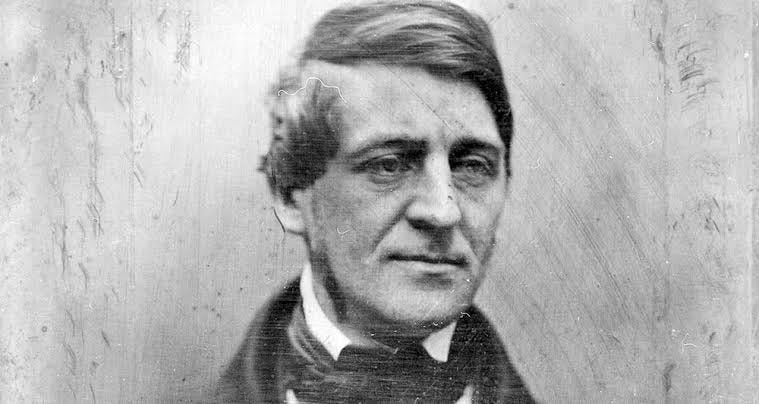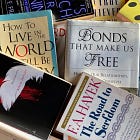Learning All the Time
Disconnecting from reality leads us to believe we can simply relax and expect extraordinary luck.
Psychiatrist Phil Stutz, in his book Lessons for Living: What Only Adversity Can Teach You, delivers a message that Marcus Aurelius would endorse:
Our culture denies the nature of reality. It holds out a promise that you can live in an ideal world where things come easily, a world in which unpleasant experiences can be avoided, where there is never a lack of immediate gratification. Worse, it suggests that if you do not live in this world, something is wrong with you. This ideal world is a realm of illusion. No matter how promising this world seems, it does not exist.
As you remember from our study of Meditations, Marcus was always looking at how he was out of touch with reality. Only in the realm of illusion would others and the world conform to the silly narrative playing in his head.
Disconnecting from reality leads us to believe we can simply relax and expect extraordinary luck. Stutz explores the consequences of indulging in magical thinking:
It is impossible to deal with events constructively without being prepared. Why are so few people prepared? Because they hope that the events, particularly the bad ones, will never come. They believe that the ideal world is real, that they can live in a world of ease. They play the lottery every day. In our culture, very few people prepare for anything.
Our ability to indulge in such fantasies is made possible by the miracles of modern life.
Lucy Larcom was a 19th-century American poet who, at age 11, out of economic necessity, worked in the textile mills of Lowell, Massachusetts.
In her book, A New England Girlhood, she writes of her experience at the mill. She was not the only mill employee dreaming of more than millwork. In the mill, she encountered other poets, singers, and writers who, like her, were hungry for education and eagerly attended the Lyceum lectures of the day. She explains the importance of the Lyceum lectures. (The Lyceum lectures were part of a voluntary adult education movement.)
The Lyceum lecture…was a means of education, conveying to the people the results of study and thought through the best minds. At Lowell it was more patronized by the mill-people than any mere entertainment. We had John Quincy Adams, Edward Everett, John Pierpont, and Ralph Waldo Emerson among our lecturers.
She couldn’t have imagined today’s America—a much higher standard of living with fewer mill workers and more people pursuing their dreams. Yet, she knew keenly that her world was already changing. “Things that looked miraculous” to her parents were commonplace to her.
“Our attitude—the attitude of the time,” wrote Larcom, “was that of children climbing their dooryard fence, to watch an approaching show, and to conjecture what more remarkable spectacle could be following behind.”
“All was expectancy.” Larcom added, “Changes were coming. Things were going to happen, nobody could guess what.”
Lucy and other workers, eager to learn from the “best minds,” listened for hours to talks by Ralph Waldo Emerson and others. Besides being a regular on the Lyceum lecture circuit, Emerson delivered over 100 lectures in his hometown of Concord, MA.
Because of those who built America, today’s youth have opportunities to attend college and fewer work in the mills. Most of today’s college students couldn’t sit still for a two-hour lecture by Emerson or other important thinkers. It's doubtful that they possess the capacity to understand an Emerson essay. Professors are unlikely to ask them to read one, either. Students might be triggered by Emerson's message of personal responsibility, the limits of their feeble minds, or their connection to God.
Students are not taught how to expand their thinking beyond their own boundaries. They are taught to criticize the principles that influenced Western civilization.
Students are taught to trust their feelings and to reason through their emotions. Sadly, teaching reinforces the notion of "us vs them" thinking. Based on their feelings and sentiments of peers, anything labeled as “them” is "evil."
Over the weekend, I read Ralph Waldo Emerson's 1844 essay "Experience." It is one of Emerson’s essays he didn’t first deliver as a talk.
Emerson described a healthy mind as one that is constantly engaged in learning. Unlike physical desires, Emerson made it clear that the desire to learn is insatiable:
When I converse with a profound mind, or if at any time being alone I have good thoughts, I do not at once arrive at satisfactions, as when, being thirsty, I drink water, or go to the fire, being cold: no! but I am at first apprised of my vicinity to a new and excellent region of life.
Learning is a process we choose to allow. Emerson describes his experience of learning:
By persisting to read or to think, this region gives further sign of itself, as it were in flashes of light, in sudden discoveries of its profound beauty and repose, as if the clouds that covered it parted at intervals, and showed the approaching traveller the inland mountains, with the tranquil eternal meadows spread at their base, whereon flocks graze, and shepherds pipe and dance. But every insight from this realm of thought is felt as initial, and promises a sequel. I do not make it; I arrive there, and behold what was there already.
Scott Young, in his book Get Better at Anything, shares a truth about learning from the innovations of others:
“The secret of our species’ success lies not in our raw, innate intelligence or in any specialized mental abilities,” writes Harvard anthropologist Joseph Henrich. Instead, he argues it’s the ability to learn easily from the innovations of others that makes us uniquely capable as a species.
Because “all was expectancy,” millworkers and others eagerly learned from the “best minds.” Today, many refuse to learn from the great minds of the past. What implications does that have for our future?
Our imagined “ideal world” is not real, and we need not live as if we are “playing the lottery every day.” Instead, we can experience a meaningful life fueled by insights from continuous learning from great books.
Mindset Shifts U is an adult education initiative that profoundly impacts its participants. We hope you'll join the group.
If you would like to support this Substack, I've extended the current introductory subscription price of $60 a year for a few more days. I deeply appreciate your paid subscription. You will receive Mindset Shifts U plus all other paywall essays.



I love learning. I’m absolutely infatuated with it. I am so blessed to have the abundant opportunity to learn!
Thx again Barry for feeding me.